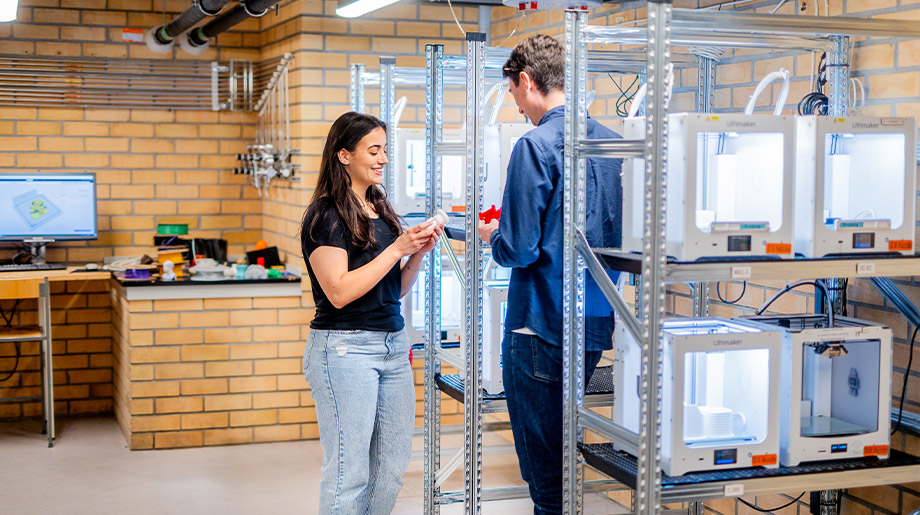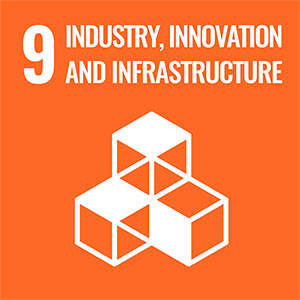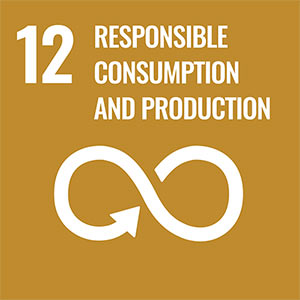MSc Integrated Product Design
The master's programme in Integrated Product Design teaches students how to create sustainable products, services, systems and business models. In one of two distinct specialisations, students either explore product, service and system design in relation to users and markets, or management of innovation and product development processes. Graduates have the expertise for careers in a wide range of industrial and business sectors.

Integrated Product Design at KTH
Engineers need advanced knowledge and highly developed skills to create competitive and sustainable products, services, and business models in today's fast-changing global market. The master's programme in Integrated Product Design offers two specialisation tracks: Industrial Design Engineering and Innovation Management and Product Development. The programme comprises a mixture of mandatory, track-specific and elective courses, allowing you to select courses that match your interests and career goals. During the programme, you will have contact with industry, and projects are often conducted in cooperation with companies or organisations, providing you with valuable experience from practice.
In the final degree project, you perform in-depth work on a problem from industry, society, or academic research that aligns with your selected specialisation. An experienced researcher supervises the degree project that you carry out in an industrial or academic environment.
The two-year programme (120 ECTS credits) is in English. Graduates are awarded a Master of Science degree. Activities within the programme are mainly held at the KTH Campus in Stockholm by KTH’s School of Industrial Engineering and Management, with access to facilities at the Department of Engineering Design and the KTH Prototype Centre.
Industrial Design Engineering track

The Industrial Design Engineering (IDE) track focuses on the design, functionality, and communicative aspects of products in relation to users and markets. You will study and work with product design and service design as well as system design. You will improve your skills in product development, merging a mechanical engineering point of view with an industrial design point of view. The activities covered in the design process include user insights, ideation, concept screening, form-giving and visualisation, branding, prototyping, overall systems design, choice of materials, manufacturing, and sustainable development.
In development projects throughout the programme track, you will collaborate closely with companies and organisations that have identified a potential development of a new product or service or improvement an existing one. From an IDE perspective, these cases need to include various types of user interactions and technical complexities to ensure that industrial design and mechanical engineering knowledge is required. The result of our efforts should address user needs and be adapted to user behaviour.
As IDE integrates industrial design and mechanical engineering, the teachers at IDE have a background in either of these fields. This also requires that the students who apply have completed both industrial design and mechanical engineering courses in their bachelor's degree.
Innovation Management and Product Development track

The Innovation Management and Product Development track focuses on managing innovation and product development processes. You will study and work with innovation in three ways: you will develop results in terms of new products, services, and business models, you will organise and manage innovation processes from both a development project perspective and an organisational structure perspective, and, finally, you will work on innovation strategies in terms of new business development. In this track, you will approach cutting-edge research in innovation management and product development and have a strong collaboration with the industry.
Elements or projects in courses in the track deal with innovation from several perspectives:
- The innovation process including all activities from understanding the user and customer needs, idea creation, product and service development and understanding the business model (value creation activities).
- The innovation strategy setting the direction for an organisation, project portfolio and business strategies.
- Innovation results in products, services and business models relating to different levels of newness.
Depending on the degree of newness of the results from an innovation process, different demands are placed on the managers of an organisation. It entails different ways of organising, leading, and conducting product development projects. In some development projects in which you improve existing products and services, you need to be capable of being efficient and use methods to enable such outcomes.
In other projects, you should understand how to challenge the organisation to move beyond current knowledge and create something entirely new. In this track, you will acquire tools that help you systematically organise, lead, and manage these different types of product development projects and deal with the challenges; knowledge and skills crucial for organisations to prosper and to be able to meet the challenges facing our society.
Courses in the programme
The courses in the Industrial Design Engineering track cover topics such as product development, user studies, product design, service design, branding, sustainable design and engineering design.
The courses in the Innovation Management and Product Development track cover topics such as innovation management, R&D management, strategy, organisation, product development and related processes, methods and tools.
Courses in the programme Integrated Product Design
Future and career
The master's programme in Integrated Product Design offers you a comprehensive education and refined expertise applicable to a wide range of industrial and business sectors as well as to organisations and consultancies.
The Industrial Design Engineering track provides skills necessary to work with product development and design, and user-driven design, either as a creative engineer, technical expert, project manager, or as commissioner of design and other related positions.
The Innovation Management and Product Development track provides opportunities for a variety of jobs in areas related to innovation, including project management, business development and product planning. You also instil competence to work on complex multidisciplinary product development projects as a technical expert, project manager, R&D manager, or consultant.
Sustainable development
Graduates from KTH have the knowledge and tools for moving society in a more sustainable direction, as sustainable development is an integral part of all programmes. The three key sustainable development goals addressed by the master's programme in Integrated Product Design are:



The challenge of transforming the industry into a fully sustainable system is paramount. In our programme, we try to tackle this on at least three levels;
- On a system level, we push a circular approach. This means moving into a service paradigm with business models based on providing shared functionality rather than just pushing stuff to the market.
- On a product level, meaning that the products need to be designed for use, repair, refurbishment and reuse. We also need to take the choice of materials and ways of production into close consideration.
- Finally, our research has pointed to the need to be innovative regarding management, organisation and business models to change the present linear paradigm into a circular one.
Faculty and research
At the , the research area covers organisational and technical processes for the efficient and effective development of innovative technology-oriented products, services and systems. This includes technology, tools, procedures, and work organisation for increased efficiency and learning in industrial product development processes.
The division's research focuses on critical factors for competitive and innovative processes in the industry in terms of utilisation of tools and procedures, organisational cooperation, parallel processes and interdisciplinary teamwork. The research is also focused on sustainable design, health, and well-being.
Many of our researchers are and have been engaged in the challenges of sustainable mobility in cities. One focus area is accessibility, i.e. providing more of the services people need at a walking distance from their homes. Another focus area is providing Mobility as a Service, MaaS, to break the dependency on car ownership.
The research group Green Leap addresses sustainability challenges using design methods, often in collaboration with companies, organisations and design practitioners. We often use a Living Lab method to discover valuable insights regarding people's behaviour and their openness to change in a sustainable direction.



